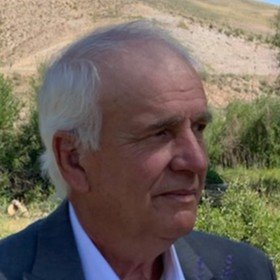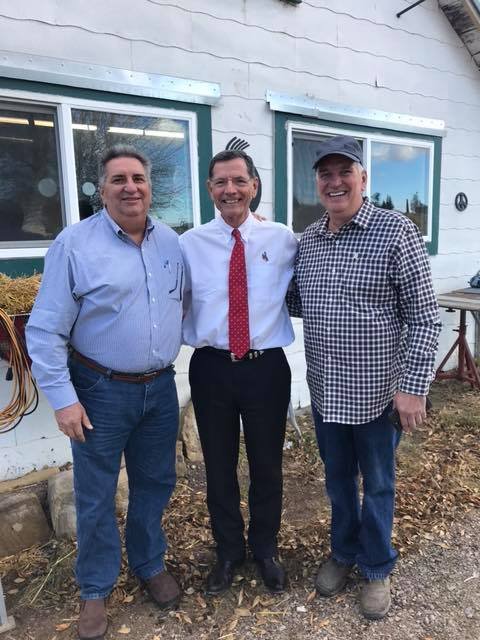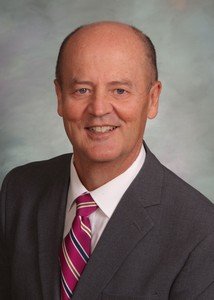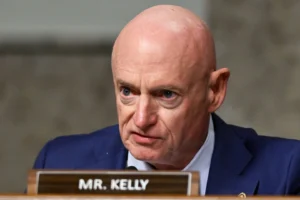Bill Would Allow Mayors and Council Members to Work for Free
Proposal comes after audit raised concerns about Diamondville mayor foregoing salary
- Published In: Politics
- Last Updated: Jan 15, 2023

An April audit report for the Town of Diamondville inspired a piece of a proposed bill that would allow town council members and mayors to waive their pay. Former Diamondville Mayor Mark Langley declined to receive his roughly $500 annual salary, but state auditors said the current law requires that officials are paid. (Courtesy photo from the Town of Diamondville)
By CJ Baker
Special to the Wyoming Truth
Mark Langley has made millions of dollars selling his patented welding equipment to customers across the globe. So when the Diamondville, Wyoming, resident became mayor of his town in 2019, he opted to waive the roughly $500 annual salary he was entitled to receive.
“It wasn’t anything about the campaign. It was once I got here [in office], it was like, ‘I didn’t do this for the money. … I don’t want to get paid for this,’” Langley explained in a recent interview with the Wyoming Truth. “That’s all.”

However, the mayor learned that turning down his salary wasn’t quite that simple.
“Apparently,” he said, “it’s against the law.”
In an April report, the State of Wyoming Department of Audit flagged Langley’s skipped paychecks as a problem. The department’s Public Funds division pointed to a statute that requires elected officials’ salaries to be set before they take office and to remain unchanged during their term.
“While the intention of waiving the mayor’s salary was to save the town money, it may violate the language of the law,” the auditors wrote.
A possible solution, they advised, would be to abolish the mayor’s pay in the future. The Legislature, however, may take a different approach: House Bill 2 from Rep. Scott Heiner (R-Green River) would just allow mayors and council members in Wyoming’s 80 towns to waive their salaries.
In an interview, Heiner said the Diamondville mayor isn’t the first elected official who’s wanted to serve his or her town as an unpaid volunteer.
“Some of these town councils make a few dollars per meeting, and they’d rather do it without any wages at all,” Heiner said. “But because of the statute, the way it is right now, they cannot do that.”

Elected officials can donate their salaries to a worthy cause, as former President Donald Trump and Wyoming Gov. Mark Gordon have done in recent years. In the case of a five- or six-figure salary, giving that money to charity can provide some tax benefits.
But for a mayor or council member making only a few hundred dollars a month, Heiner said it’s generally not enough to offset tax bills.
As a result, a municipal official can be “forced to receive pay, and then he’s not able to deduct that on his income taxes,” Heiner said.
He said the current statute penalizes and discourages those who want to serve their community without compensation, and “I think we need to provide enough incentive to bring people to the table to run for these offices.”
Creating “an awkward position”
Heiner’s argument — that offering less pay could encourage more people to seek elected office — contrasts with the one being put forward by legislative leaders. The Management Council is sponsoring multiple bills this session that would give lawmakers health insurance benefits and more money for expenses; they were spurred, in part, by concerns that not all Wyomingites can afford to run for and serve in the Legislature.
Heiner’s bill would not apply to Wyoming’s 19 cities or any other elected offices. However, City of Cody Mayor and Wyoming Association of Municipalities President Matt Hall is concerned about the message it could send.
“It puts local government officials kind of in an awkward position,” Hall told the Wyoming Truth, “because once a precedent kind of becomes set … then the next person down the road is going to be like, ‘Oh, well, this person gave up his salary. I’m not gonna vote for you unless you do the same thing.’”
Hall believes that could limit the field of potential candidates to wealthier individuals.
At the City of Cody, Hall has served alongside council members who’ve donated their pay to their church or another charity, but others have needed the extra income, he said. The mayor added that his $24,000 salary and the $100 per meeting paid to council members represents a fraction of the city’s roughly $35 million budget.
“People’s time is worth something,” Hall said. “And so … at least providing a little bit of compensation to help out, to offset the time they’re away from their job, family and stuff, I think it’s more than fair.”
The sacrifice of public service

Sen. Dan Dockstader (R-Afton), the outgoing senate president and a co-sponsor of Heiner’s bill, understands the concerns about a lack of compensation for public service.
However, “it’s got [to] hurt a little to serve,” Dockstader said, “and then you better appreciate the importance of your responsibilities to your constituents.”
While he may not have received a write-up from the Department of Audit, Dockstader could be considered a scofflaw: He declined his $100 a month salary during his tenure on the Afton Town Council. Although he now receives pay as a lawmaker, he said the compensation “does not come close” to the amount of time and money he gives to his role in the Senate.
Dockstader added that he’s consistently voted “no” on bills that would boost compensation for public officials.
“Ultimately, public service should require sacrifice,” he said.
As to the contention that the bill could lead voters to expect that mayors and council members work for free, Heiner said that’s not the intent of his bill — nor does he think pay should be a deciding factor at the ballot box.
Rather, “we need to look for the individual that has the most capabilities and is willing to serve and has the time to put into it,” he said.
Mayor moves on
In Diamondville, the mayor is paid per meeting, but Langley said the responsibilities of the job go well beyond two gatherings per month.
“If you’re doing it for that [paycheck], you don’t realize the work that goes into this,” he said.
After taking office in 2019, Langley said he took on multiple projects, including working with a power company to get donated lighting for a town park and just generally trying to get the town’s affairs in order. While state auditors questioned Langley’s decision to forgo his salary, they found more serious problems with Diamondville’s internal controls and financial statements that dated back to 2014. For instance, they criticized two council members for reportedly failing to pay for their garbage service in 2017 and 2018, when the town’s billing practices were inconsistent.
Langley said he and the town clerk got the garbage accounts back on track and “did a lot of good things” over the past four years. However, Diamondville voters apparently saw things differently, as Langley lost his bid for reelection by more than 20 percentage points in November.
Despite the loss — and the lack of compensation — Langley described his tenure as mayor as a worthwhile experience.
“I could walk down the street and look anybody in the eyes,” he said.
Meanwhile, the legislation he inspired awaits a hearing before the House Appropriations Committee.













